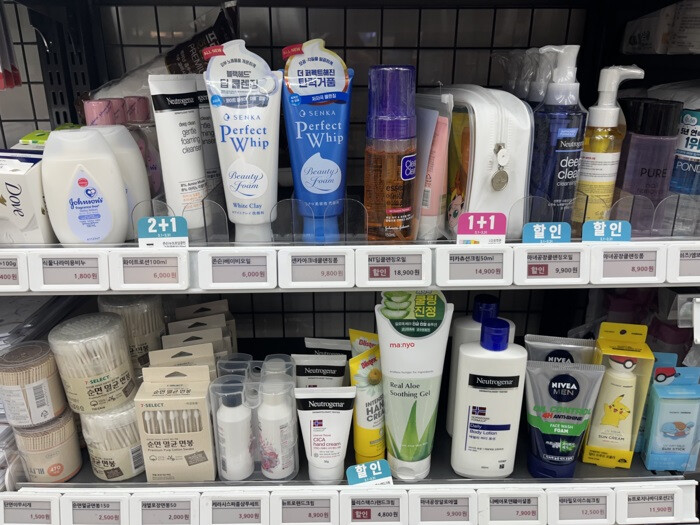
Seoul, South Korea – Convenience stores are diving into the affordable beauty market, offering a new challenge to the dominance of discount retailers like Daiso. With a focus on small-sized, budget-friendly products, these convenience stores are targeting consumers seeking quality beauty items at competitive prices.
GS25, one of South Korea's largest convenience store chains, recently launched a line of affordable beauty products, including sunscreens, serums, and cleansers. Each product is individually packaged in small, 2ml units and sold in sets of six for just 3,000 won ($2.25). "We aim to establish ourselves as a practical and accessible beauty platform by offering a wide range of affordable beauty products," said Ryu Ju-hee, a product planner at GS25.
CU, another major convenience store chain, has also joined the fray with its own line of affordable beauty products, which were launched in September. These products, including collagen masks, vitamin C serums, and moisturizing creams, are also priced at 3,000 won per set.
The move by convenience stores is largely attributed to the success of Daiso's beauty business. Since its foray into the beauty market in 2021, Daiso has seen its beauty sales skyrocket, with a growth rate of 223% in the first half of 2024 alone. The retailer's strategy of partnering with smaller online-based suppliers to offer affordable products has proven highly successful.
The growing popularity of affordable beauty products is fueled by several factors, including the rising cost of living, the influence of social media, and the changing preferences of younger consumers. Social media platforms like YouTube and TikTok have played a significant role in popularizing certain beauty products and trends.
While Olive Young remains the dominant player in the health and beauty retail market, the entry of convenience stores and discount retailers like Daiso has intensified competition. Other players like Musinsa and Kurly have also launched their own beauty services, leveraging the popularity of K-pop idols as brand ambassadors.
"Social media has a huge impact on what beauty products become popular," said an industry insider. "When a certain product or beauty routine goes viral on platforms like YouTube or TikTok, it can create a huge demand."
As the competition in the beauty market heats up, consumers are likely to benefit from a wider range of affordable and high-quality products.
[Copyright (c) Global Economic Times. All Rights Reserved.]






























